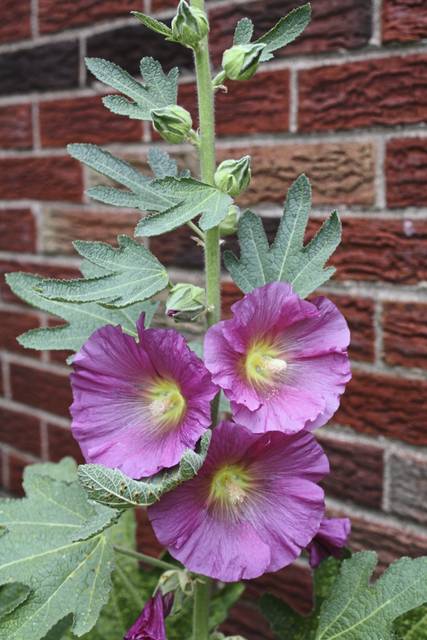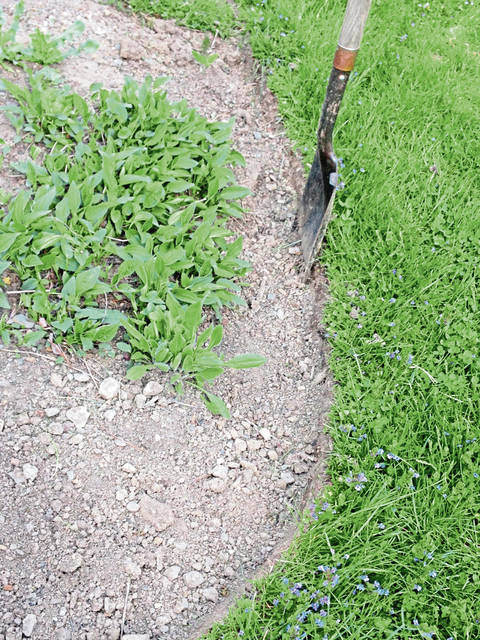As you look through all the seed catalogs arriving in your mailbox and dream about the garden season to come, you may find yourself a bit confused about certain terms you find in those catalogs. Some seed catalogs have small glossaries in the back or other notes that define what these terms mean. Others may leave the gardener guessing.
Here are some of the more frequently used terms from seed catalogs and their definitions, to help you better navigate the pages and make the best varietal selections for your landscape.
Hybrid: A hybrid variety is one that was created by the controlled, intentional crossing of two different varieties of the same species of plant. The selected parent varieties are purposefully cross-pollinated to combine positive traits from each of them into their off-spring. Often said to be more vigorous and disease-resistant, seeds for hybrids tend to be more expensive because it took more work to create them. Hybridization is a classic plant breeding technique that has taken place since the advent of agriculture.
Open-pollinated: This term defines plants whose pollination occurs naturally. The genes of two plants within the same species are brought together as pollen is shared openly among different plants via insects, wind, or other means. Unmanaged, open-pollination yields many natural hybrids. In natural populations of open-pollinated plants, there is often a wide genetic variation. Self-fertile vegetables (ones with flowers that are capable of fertilizing themselves, such as tomatoes and beans) typically don’t cross pollinate with other varieties, so even though they’re open-pollinated, their varieties are stable.
Heirloom: An heirloom plant is an open-pollinated variety that’s been grown for more than 50 years and is often passed down through the generations.
Annual: A plant that completes it’s life cycle in one year. Alternatively, we also call plants that die when exposed to freezing temperatures annuals. However, many common annuals we grow here in Pennsylvania are actually perennials in warmer climates, including coleus, fuchsia, peppers and geraniums, among many others.
Perennials: Plants with a life cycle that lasts two or more years, provided they are winter hardy in the zone where they’re being grown.
Biennial: A plant that requires two years to complete its life cycle. The first year, the plant produces only green foliage. The second season, it flowers, drops seed, and then dies. Classic examples of biennials include hollyhocks, larkspur and foxgloves.
Days to maturity: This refers to the number of days it takes for a particular variety to go from a planted seed to maturity. For some crops, like carrots or beets, that’s the point at which they’re harvested; for others, like tomatoes or eggplants, it’s the point at which they produce their first flower. You also may see days to harvest noted. That’s the time required to go from seed to picking the first ripe fruit or veggie.
Direct sowing/direct seeding: A technique where seeds are sown directly into the garden, rather than being sown indoors in a greenhouse or under grow lights and then moved out into the garden as a young transplant. Many common vegetables and flowers can be direct seeded into the garden here in Pennsylvania, including beans, peas, squash, melons, cucumbers, beets, carrots, and more. In colder climates with shorter growing seasons, gardeners may opt to give their seeds a “jump start” by starting them indoors several weeks before they would be able to direct seed them outdoors. This allows gardeners in northern regions to grow a harvestable crop despite their shorter growing season.
Last frost date: The date at which the last spring frost is expected. Here in Pennsylvania our last frost date is around May 15.
First frost date: The date of the first expected fall frost. Here in Pennsylvania, that’s typically around Sept. 30.
Horticulturist Jessica Walliser co-hosts “The Organic Gardeners” at 7 a.m. Sundays on KDKA Radio with Doug Oster. She is the author of several gardening books, including “Attracting Beneficial Bugs to Your Garden,” “Good Bug, Bad Bug,” and her newest title, “Container Gardening Complete.” Her website is jessicawalliser.com. Send your gardening or landscaping questions to tribliving@tribweb.com or The Good Earth, 622 Cabin Hill Drive, Greensburg, PA 15601.








